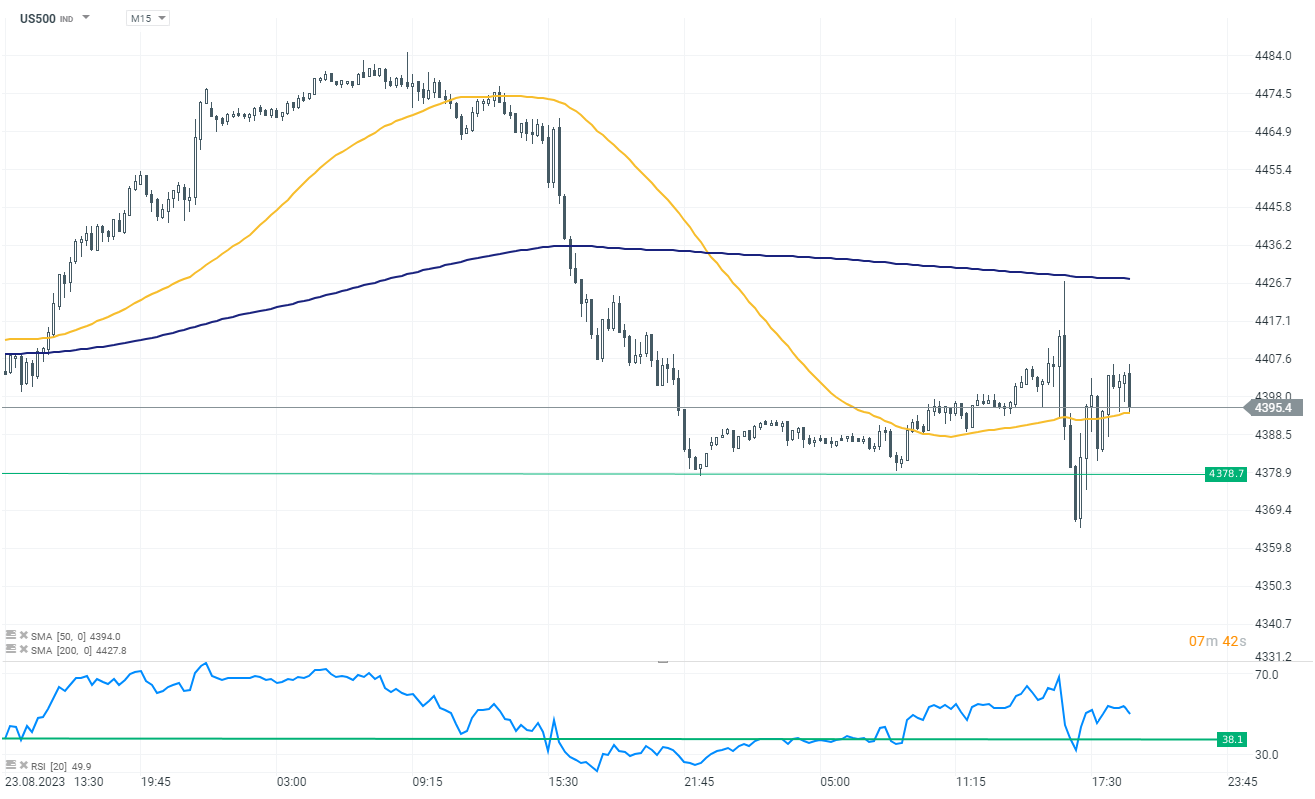The Federal Reserve members' stances are generally hawkish, emphasizing a cautious approach to inflation control and economic stability. Here is a short summary:
Patrick Harker
-
Harker, President of the Federal Reserve Bank of Philadelphia, expressed his preference for maintaining the current interest rate levels. He believes this approach will allow the impacts of previous tightening measures to work through the economic system.
-
Harker emphasized the importance of observing a decrease in inflation. He noted that early signs of inflation moving down are being observed, but he wants to keep rates unchanged for now and make decisions about future actions later.
-
Harker stated his belief that the current policy stance is restrictive, implying that interest rates are relatively high. He mentioned that this stance aims to apply pressure on the economy to slow down inflation.
-
When asked about the timing of rate cuts, Harker indicated that rate cuts are not likely until next year at the earliest. He underlined the data's role in dictating the appropriate timing for such actions.
-
Harker mentioned that the current stance involves both maintaining higher interest rates and shrinking the balance sheet, which removes accommodation from the monetary policy. He expects policy to remain steady throughout the rest of the current year, with a possibility of rate cuts if inflation decreases more quickly than anticipated.
Loretta Mester
-
Mester, President of the Federal Reserve Bank of Cleveland, expressed concern about core inflation remaining elevated. She emphasized the need for consistency in bringing inflation down to the target level of 2%.
-
Mester acknowledged that more work is required to address inflation. She emphasized the importance of being cautious and avoiding both overtightening and undershooting in the pursuit of inflation control.
-
Mester noted that the current policy stance is already restrictive. She posed two key questions: whether further rate increases are necessary and how long restrictive policies need to be maintained to ensure inflation returns to the 2% goal.
-
Mester's outlook has not significantly changed since June. She previously projected two more rate increases for the current year, one of which has already been implemented, and she does not foresee any rate cuts in the coming year.
Austan Goolsbee
-
Chicago Fed President Austan Goolsbee emphasized that he sees a feasible path to reducing US inflation without causing a significant recession. He referred to this as a "golden path."
-
Goolsbee mentioned that despite the need for more incoming data, there have been no recent developments in the past two months that have convinced him the "golden path" is unattainable.
-
Inflation Target and Policy: When asked about the possibility of changing the Fed's inflation target from 2%, Goolsbee expressed his hesitation. He believes that the current inflation rate is still too high, indicating discomfort with declaring victory prematurely. He stated that the inflation target should not be changed until it is actually achieved.
-
Goolsbee acknowledged that while annual price growth has slowed, inflation is not yet fully down to the target level of 2%. He emphasized the importance of hitting the established target before considering any adjustments.

US500 is still struggling to find direction at the end of today's session. Markets probably anticipated more announcements about upcoming rate cuts; however, there is an unchanged stance from central bankers regarding the need to combat inflation.

Daily summary: Silver plunges 9% 🚨Indices, crypto and precious metals under pressure

BREAKING: US jobless claims slightly higher than expected

Economic calendar: US Jobless Claims and ECB Speeches to Offer Markets Breathing Room (12.02.2026)

BREAKING: Pound frozen after lower-than-expected GDP data from UK 🇬🇧 📉
The content of this report has been created by XTB S.A., with its registered office in Warsaw, at Prosta 67, 00-838 Warsaw, Poland, (KRS number 0000217580) and supervised by Polish Supervision Authority ( No. DDM-M-4021-57-1/2005). This material is a marketing communication within the meaning of Art. 24 (3) of Directive 2014/65/EU of the European Parliament and of the Council of 15 May 2014 on markets in financial instruments and amending Directive 2002/92/EC and Directive 2011/61/EU (MiFID II). Marketing communication is not an investment recommendation or information recommending or suggesting an investment strategy within the meaning of Regulation (EU) No 596/2014 of the European Parliament and of the Council of 16 April 2014 on market abuse (market abuse regulation) and repealing Directive 2003/6/EC of the European Parliament and of the Council and Commission Directives 2003/124/EC, 2003/125/EC and 2004/72/EC and Commission Delegated Regulation (EU) 2016/958 of 9 March 2016 supplementing Regulation (EU) No 596/2014 of the European Parliament and of the Council with regard to regulatory technical standards for the technical arrangements for objective presentation of investment recommendations or other information recommending or suggesting an investment strategy and for disclosure of particular interests or indications of conflicts of interest or any other advice, including in the area of investment advisory, within the meaning of the Trading in Financial Instruments Act of 29 July 2005 (i.e. Journal of Laws 2019, item 875, as amended). The marketing communication is prepared with the highest diligence, objectivity, presents the facts known to the author on the date of preparation and is devoid of any evaluation elements. The marketing communication is prepared without considering the client’s needs, his individual financial situation and does not present any investment strategy in any way. The marketing communication does not constitute an offer of sale, offering, subscription, invitation to purchase, advertisement or promotion of any financial instruments. XTB S.A. is not liable for any client’s actions or omissions, in particular for the acquisition or disposal of financial instruments, undertaken on the basis of the information contained in this marketing communication. In the event that the marketing communication contains any information about any results regarding the financial instruments indicated therein, these do not constitute any guarantee or forecast regarding the future results.


